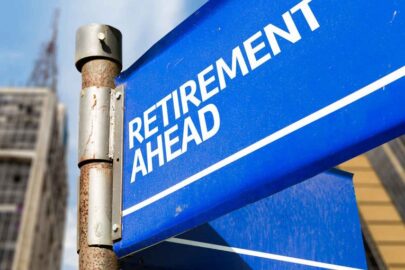Older people can be very philosophical. I was driving my mother home after the Christmas break when we hit the M25 and came to a complete stop for over 20 minutes.
She can only leave her home if she is with someone. She pipes up, “I sit at home some days and get really frustrated that I am going nowhere. Look at all these people who are able to go somewhere but going nowhere. Next time I get frustrated, I’m going to think of those people stuck on motorways going nowhere.”
All through our lives we want to go somewhere, when we want. However, trains get cancelled, motorways become congested and therefore we can’t always go where we want, when we want. Those with disabilities – whether they are through old age or otherwise -0 are often the same and they have the additional problem of organising other people to help get them to where they want, when they want.
Retirement is a series of decisions. When should I retire? How should I retire? When should I claim my State pension? How to use my retirement savings? How much can I spend? What should I do with my tax-free cash? Will I move house? And many more.
Each situation is akin to my mother’s ‘going nowhere’ philosophy. We can decide to bury our heads in the sand and do nothing, which is to go nowhere; or do something and find that what we want to do is frustrated by external factors.
When to retire should be a positive decision taken in response to personal circumstances; to meet a financial goal or for other positive reasons. If work is enjoyable why stop? If more leisure time is required there are alternatives that involve reducing working hours or even taking on voluntary work.
A successful later life should not involve going nowhere until the employer makes the decision that you are not capable of doing the job anymore.
A few months before State pension age, the Pensions Service of the DWP write to you to ask if you want to claim your State pension. If you do there is a process to go through.
The terms for deferring State pension are not as generous as they were before 2016 and the lump-sum alternative is no longer available. Unless you believe you are going to live an exceptionally long time, it is probably better to claim it. If you are still working, by recycling the State pension you receive into a private pension you can ‘turbo charge’ last-minute pension savings and avoid paying additional tax. A positive choice has to be made. Putting off that choice will not often be in their best interests.
Then we come to the big one: how to use the accumulated retirement savings?
Here I need say no more than refer to two reports. Surveys completed by Ignition House on behalf of State Street Global Advisers and the Peoples Pension, found many people are putting off making pension decisions. They have named them ‘Procrastinating Pete and Paula’.
This is not surprising, considering a report from the Pensions Policy Institute in November 2014 reported decisions to put retirement savings into payment were among the most complicated that individuals need to make.
These reports look solely at pension savings. Add in other savings and the decisions become more difficult. Also, the decisions should be made with the retirement the individual desires in mind, rather than poor decisions dictating the retirement individuals must follow.
What makes the decisions more difficult is the fact that a large proportion of individuals have inadequate retirement savings for the retirement they desire. Fortunately, close to 70% of retirees own their own home but how will they call on that wealth to fund their retirement? Will they move house or take out a retirement or equity release mortgage? More importantly, will such decisions be made proactively or in reaction to a financially difficult situation.
Being aware of the options and thinking about their preferences will enable better decisions to be made. But where do individuals go for such assistance? You can see why there is a considerable need for more advisers to be active in the later life space.
Life is becoming more complicated not least retirement. Many large employers offer their staff financial wellbeing schemes, others are beginning to offer a mid-life MOT. However, 60% of private sector employees work for small and medium employers. They will not have access to such schemes and the information they need. Then there is the growing army of the self-employed, which is fast approaching five million.
Those who do not have access to such services and do not engage with the correct advisers are vulnerable to making inappropriate decisions or even worse no decisions at all. For any adviser considering their entry, or activity, into this space, think about what your own retirement needs might be, and the complicated nature of the decisions you would have to make. You’ll perhaps see why this is a market that can deliver considerable returns and one that is unlikely to dip in demand anytime soon.
Bob Champion is chairman of the Later Life Academy (LLA)
